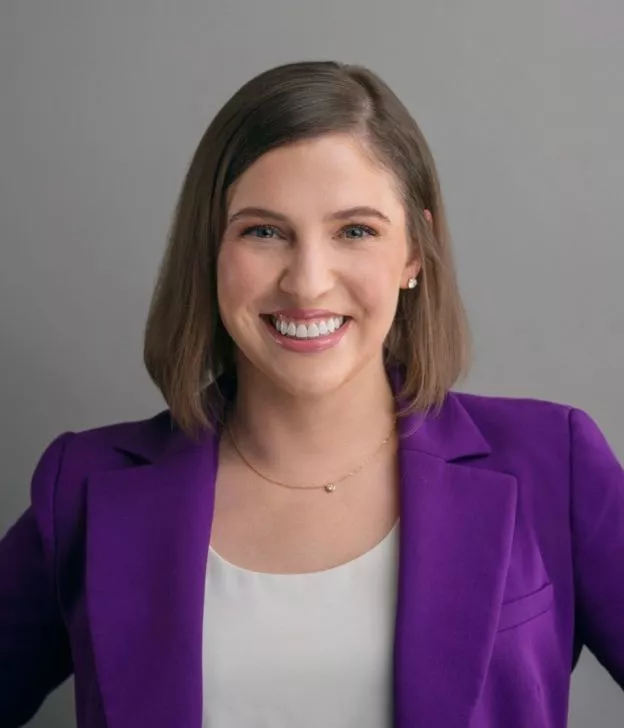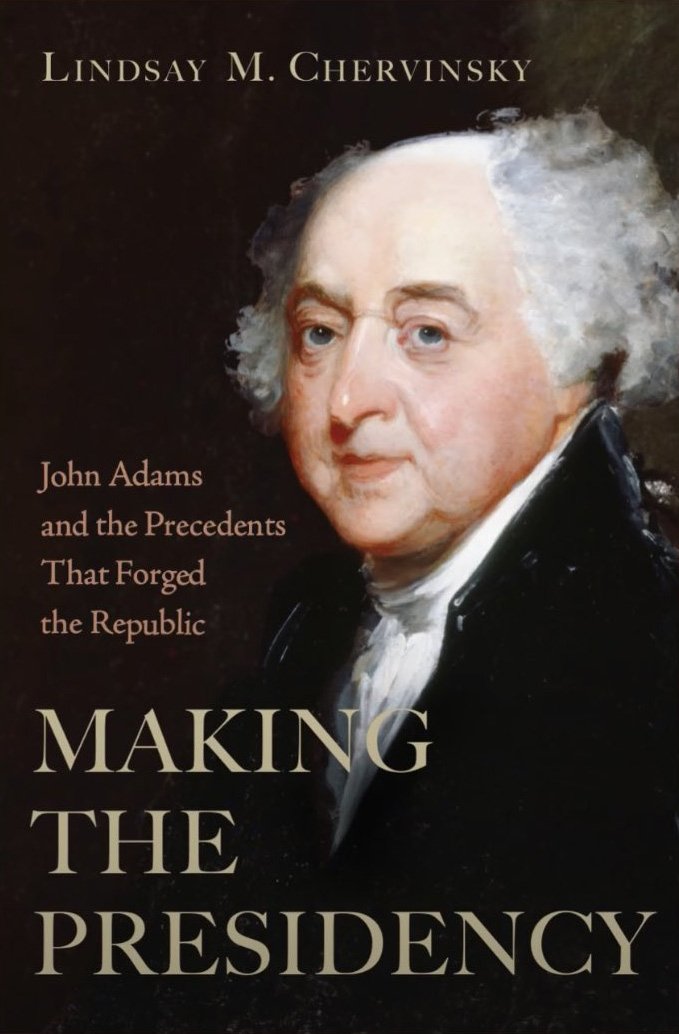
Unlocking the Adams Presidency with Dr. Lindsay Chervinsky
JMC Resident Historian Elliott Drago sat down with JMC Scholar Lindsay Chervinsky to discuss her new book, Making the Presidency: John Adams and the Precedents That Forged the Republic. Dr. Chervinsky is a presidential historian and the Executive Director of the George Washington Presidential Library.
ED: What led you to write Making the Presidency: John Adams and the Precedents That Forged the Republic?
LC: I was toying around with a John Adams book in some fashion. I was curious about how the presidency survived after George Washington. He was such a unique figure with unparalleled stature. He established critical precedents, but if they weren’t repeated and if his successors didn’t uphold the office, it wouldn’t have worked. Then the insurrection on January 6, 2021, happened and it changed the way I observed presidential transitions. It inspired me to look at the earliest peaceful transfers of power and examine how the presidents developed that practice as central to our republic. Once I started looking for the emergence of that tradition, it unlocked the Adams presidency.
ED: What is the main argument of your book?

LC: John Adams knew his presidency was going to be rough. Whoever came after Washington was going to have a terrible time. He took on the challenge anyway, faced down threats to executive power from within his cabinet and party, demonstrated incredible political courage, preserved peace, and defended executive power. He crafted essential norms and customs central to our democratic institutions, most notably the peaceful transfer of power, and ensured the survival of the presidency.
ED: Tell us how you came up with the title of your book.
LC: I am admittedly terrible at titles and this title was a very long process. I had about 10 working titles before we finally crafted this one. I wanted it to be evocative and descriptive but feature the presidency first before Adams. It’s really not a book about Adams, it’s a book about the presidency through Adams and I wanted the title to convey that. My editor, Susan Ferber, and I finally came up with this one once the book was written and my argument was clear.
ED: Many Americans know that John Adams was our second president, but if pushed for a second fact, some people would admit to not knowing much about him at all. Besides being our second president (and first vice-president), what makes Adams such a significant figure in American political history?
LC: Adams was present and instrumental in so many critical moments. He engineered Washington’s appointment as Commander-in-Chief of the Continental Army, he ensured Jefferson wrote the draft of the Declaration of Independence, he fought for American sovereignty in several pivotal treaties including the Treaty of Paris which ended the Revolutionary War and secured independence, he drafted the Massachusetts state constitution which served as a model for the US Constitution, and he served faithfully as the first vice president. His roles were rarely as flashy as military exploits or authoring the Declaration of Independence, but the work he did behind the scenes often made those achievements possible.
Most important, [Adams] retained unflagging patriotism and belief in the American experiment and gave most of his life to ensuring its success.
ED: Given your previous work on Washington’s cabinet, how did John Adams go about constructing his own cabinet?
LC: Poor John Adams. There was no precedent of cabinets resigning during a transition and Adams had no model to follow. He knew Washington had struggled to fill cabinet vacancies as these positions were not as prestigious as they are today, were underpaid, and kept secretaries away from their home and families for months at a time. If Washington had trouble, Adams would too. He also worried that replacing Washington’s appointments would appear to be a rebuke of the first president’s judgment. Finally, Adams believed that keeping the secretaries would provide helpful continuity at a moment of incredible anxiety and turmoil. So he did, and it turned out to be a terrible mistake.
ED: You’ve written on Washington and Adams: does that mean we may have a Thomas Jefferson book on the horizon?
LC: Absolutely not. This book was originally supposed to be Jefferson and Adams and I realized I didn’t want to write the Jefferson half. Partly because I had already written an article about his cabinet and felt like I didn’t have anything else to say, but also because I didn’t want to spend four years in his head. For me personally, I don’t have to love my subject, but I need to find them compelling. I firmly believe in Jefferson’s importance and impact, but he just doesn’t hook me.
Finding new angles
ED: What advice would you give to a student who wants to write a biography on a famous American?
LC: Find someone who ignites your curiosity, makes you laugh, and with whom you want to spend your time. Be sure to embrace their flaws and strengths. Then find something about them that hasn’t been covered by other biographies. Most big figures have been written about a lot. That doesn’t mean you shouldn’t write about them, but you should probably try and find a new angle.
ED: What does your book reveal about America’s founding principles and history?
LC: Making the Presidency depicts a founding generation that was extraordinarily real and flawed. But they cared so deeply about the future of the nation. They were earnest and devoted and gave decades of their lives to its success. They also genuinely feared the republic would collapse at any moment. They also remind us that our norms, customs, and institutions require citizen buy-in and participation. Making the Presidency reveals that the founding generation understood the republic’s fragility and teach us not to take any of it for granted.
ED: Thank you for your insights! I’m ordering my copy of Making the Presidency as we speak…and so should everyone reading this interview!
Elliott Drago serves as the JMC’s Manager of the History Initiative. He is a historian of American history and the author of Street Diplomacy: The Politics of Slavery and Freedom in Philadelphia, 1820-1850 (Johns-Hopkins University Press, 2022).
